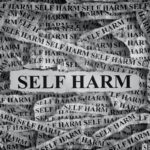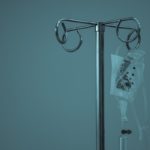Introduction
Liaison psychiatry is a subspecialty of general adult psychiatry which provides, as the name implies, a liaison, or advice and assessment service to general hospitals. The liaison psychiatry team usually consists of doctors, psychiatric liaison nurses (PLNs) and sometimes a team manager and administration staff. The team is usually based in or near the general hospital it provides services to (and may provide services to more than one hospital in the locality) and takes referrals from any department, including A&E.
What we already know
Liaison psychiatry is a fascinating area to work in, particularly as most of the patients referred have complex overlapping medical and psychiatric complaints. It is a relatively modern service model, gaining traction since the 1970s. It is estimated that 5% of all emergency department presentations are due to mental disorders.
In 2013 Tadros et al published data about a service model termed ‘RAID’ (Rapid Assessment, Interface and Discharge), which showed a total saving in bed days of 43-64 beds per day, by reducing length of stay and readmissions. The majority of bed savings were in elderly care wards. You can read more about that study here.
An economic evaluation based on this work estimated that a liaison psychiatry service in a typical 500-bed general hospital could generate savings of up to £5 million per year.
Areas of uncertainty
Not every general or acute hospital has an in-house liaison psychiatry service and it this is something that will need to be addressed in future. Teams are expanding their roles and are gradually moving into primary care settings, in addition to general hospitals, but uncertainty remains (as with most acute hospital services) about the future direction that liaison psychiatry may take.
What’s in the pipeline
The Psychiatric Liaison Accreditation Network (PLAN) aims to set standards for liaison psychiatry services to be commissioned and reviewed against, for example one criterion states that patients referred for emergency mental health care are seen within 60 minutes. As more liaison teams sign up for accreditation, the more that quality, safety and efficiency will improve according to these standards.
There remains variation in provision and, as the Centre for Mental Health described it, liaison psychiatry “needs to be recognised as a essential ingredient of modern health care”.
References
Tadros, G., Salama, R. A., Kingston, P., Mustafa, N., Johnson, E., Pannell, R., & Hashmi, M. (2013). Impact of an integrated rapid response psychiatric liaison team on quality improvement and cost savings: the Birmingham RAID model. The Psychiatrist, 37(1), 4–10. doi:10.1192/pb.bp.111.037366 [Abstract]
Acknowledgement
Written by: Josephine Neale
Reviewed by:
Last updated: Sep 2015
Review due: Sep 2016










